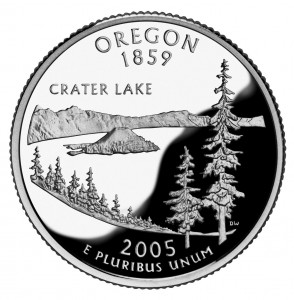
By Ford T. Pearson, Flip-Side Magazine
[Editor’s note: Congratulations to everyone who worked so hard on the Measure 91 campaign to pass legal cannabis laws for adults in Oregon. The initiative passed with 52% of the vote. Well done! – Bethany Moore, NCIA]
(Excerpt submitted by Flip-Side Magazine)
Measure 91, Oregon’s adult-use marijuana legalization initiative, is likely the most elegant articulation of US regulated marijuana enterprise to date.
To be fair, Flip-Side Magazine’s paradigm of what is a good piece of marijuana legislation is heavily skewed by the economic opportunity it presents for stakeholders. While it’s clear the authors of Measure 91 remedied many of the flaws within Colorado and Washington state’s still new marijuana programs, where the measure really excels is the astounding potential for commercial endeavor.
Wholesaler category
“’Marijuana wholesaler’ means a person who purchases marijuana items in this state for resale to a person other than a consumer in this state.” —Measure 91
Measure 91 includes four stakeholder categories for which you can apply for a license. Like Washington’s I-502 categories, Measure 91 categories include producer (grower), processor, and retailer licenses. But Measure 91 also includes an exciting new category: wholesaler. The wholesaler license category, missing from Washington’s marijuana program, will make life easier for Measure 91 producers/processors and expand employment within Oregon’s marijuana program. As Washington’s I-502 producer/processors are now learning, selling marijuana can be an extremely daunting task. Even with just 66 of the planned 334 retail stores open, many I-502 processors are surprised at how time-consuming it is to manage and reconcile the preferences of 66 different buyers. Under Washington’s I-502 rules, processors have to sell directly to retailers or hire third-party marijuana sales or strain acquisition consultants to facilitate sales activities for them. Those consultants have to provide their services within a very narrow definition of activity in order to keep the transactions compliant with I-502 rules. Among the restrictions they face is the inability to actually purchase and resell marijuana the way a traditional wholesaler would. Oregon’s Measure 91 wholesaler category provides a remedy for that specific limitation and adds an entirely new facet of economic opportunity to Oregon’s implementation of a regulated, legal marijuana industry.
No “tied house” prohibition
“The same person may hold one or more production licenses, one or more processor licenses, one or more wholesale licenses, and one or more retail licenses. ” —Measure 91
Measure 91 allows for a completely vertically integrated marijuana organization. For example, under its generous licensing scheme, Measure 91 stakeholders could own several producer/processor operations, a couple of wholesale operations, and dozens of retail outlets throughout the state. Allowing this kind of structure not only increases economic opportunity, but also creates an environment that can eliminate inventory volatility and would enable micro-chains to provide consistent and reliable access to the most marketable strains of marijuana and marijuana products.

No residency requirement!
Perhaps the most significant characteristic of Measure 91 is that it does not require stakeholders to be residents of Oregon. Both Colorado’s and Washington’s programs restricted engagement (including investment from speculators) of their legal marijuana industries to residents of the state. I have to admit, when I first learned of this characteristic of Measure 91, I was disappointed. I’ve spoken to literally hundreds of I-502 applicants and licensees, and every single one of those was a small, usually family-run, business. Once Washington’s cannabis program catches its stride, those families will lay claim to their share of a half-a-billion-dollar-a-year industry, and that’s a beautiful thing.
After considering it, I think the benefits the non-residency characteristic presents likely outweigh the negatives. True, one could worry about giant companies coming into Oregon and buying up all of the strategic locations and/or resources needed to grow Oregon’s new marijuana industry, and that’s certainly possible under Measure 91 rules. However, even if that did occur, those out-of-state entities would rely upon locals to implement their plans and this would create significant employment and economic opportunities for those people. Also, and quite ironically, legal marijuana’s primary nemesis, its status as a Schedule 1 drug per federal law, works against large companies investing heavily in Oregon’s program. Federally speaking, not only would those large, out-of-state corporations be breaking the law, but they would also be crossing state lines to do so. There’s a good chance that’s more stress than your typical VP of marketing and development can tolerate. Also, it’s possible that there are quite a few Oregonians with the proverbial rich uncle who lives out of state, so the no-residency requirement would prove beneficial should they decide to engage the industry.

Go with a pro
Consider hiring a cannabis-centric attorney such as Oregon’s Paul Loney or Canna Law Group, or a marijuana enterprise consultant (usually cheaper than attorneys), or both, to guide you through the startup and license application phase.
Know the numbers
Starting up a legal marijuana business ain’t cheap. Many of the mandatory regulatory aspects of a legal cannabis business, such as fencing, surveillance and security, insurance, zoning, etc., can be big-ticket items. In Washington, even a small, Tier 1 Producer operation is easily a $100,000 investment. And if you’re a wannabe retailer, don’t forget inventory cash! Right now in Washington state, there’s a retailer bank-wiring $230,000 to a producer/processor for what is likely a 10-day supply of marijuana. Make sure you’re clear on the cash requirements for implementing your business and make sure you can access that cash. Also, be prepared to show the OLCC precisely where that cash is, and where it came from.
Hang tough!
Enduring bureaucratic scrutiny can be exceedingly frustrating. The hoops through which Measure 91 stakeholders will have to jump are significant, and you may reach a point where you consider just bagging it. Don’t. I know people who’ve quit the I-502 process, and not a single one of them is content with that decision. Don’t forget that you’re fighting for an opportunity that represents potentially generations of prosperity for you and your family.
Ford T. Pearson is Publisher/Editor of Flip-Side Magazine, a sponsoring level member of NCIA since 2014. Ford has significant experience within the legal marijuana industry, including working as a publicist for cannabis-related businesses, and as a consultant helping applicants of Washington’s Initiative 502 legal adult-use marijuana program, Oregon’s HB3460 program, and Oregon’s Measure 91 program. Flip-Side Magazine provides news and resources for the northwest cannabis industry, and is the only marijuana trade publication serving Oregon and Washington cannabis professionals.

Follow NCIA
Newsletter
Facebook
Twitter
LinkedIn
Instagram
–